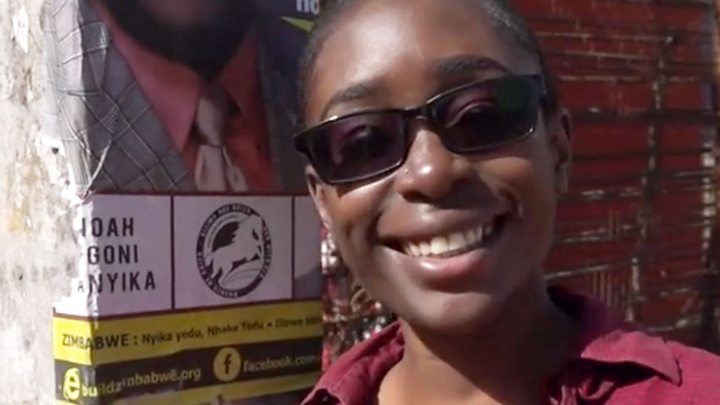
An elaborate scheme involving a fake college set up in New Jersey by ICE has, unsurprisingly, resulted in a lawsuit by some of the foreign students swept up in the sting operation. Apparently having given up on rooting out the worst of the worst non-citizens, ICE is contenting itself with arresting and charging foreigners for attempting to stay in the country legally by continuing their education.
The fake university looked pretty real to applicants. It had a website, a Facebook page, and — most importantly — accreditation by a national accreditation service. The school’s website told students the fake school was certified by the DHS’s Student and Exchange Visitor Program to “educate international students.”
It all looked legit. None of it was. ICE claims it was targeting people who defrauded students or universities by brokering illegitimate educational offerings meant to allow visitors to overstay their visas. That doesn’t explain why ICE accepted registration fees from interested students. Nor why it arrested a bunch of students trying to do something they were legally allowed to do.
ICE ended up with about eight criminal suspects from the hundred-plus arrests resulting from the sting operation. Some of the others caught up in the sting had their visas cancelled, supposedly due to “fraudulent enrollment.” So, in the government’s eyes, the people ICE tricked into enrolling in its very real-looking fake college are every bit as criminal as the criminals the government is actually prosecuting.
The lawsuit deals with these suddenly-cancelled visas. The issue is the government’s arbitrary decision to turn people they first referred to as “victims” into accused criminals solely for the purpose of stripping them of their visas. This determination comes without any form of due process attached, so it’s up to federal courts to field these challenges, as the Appeals Court points out.
The Appeals Court delves into administrative minutia to counter the government’s arguments and point out where the lower court went wrong. But it also spends some time dealing with the government’s contradictory assertions. After sending letters calling the duped students “frauds,” the government argued in court it didn’t actually mean what it said in the letters informing the students they were no longer welcome in this country. From the decision [PDF]:
We held argument on September 25, 2018. There, for the first time, the Government informed this Court that its position was not that the students had committed fraud by enrolling in UNNJ. Rather, the Government believed that the students were the victims of fraud. The Government twice stated that the students “were caught up in it in the sense that they were victim by the academic recruiters” and that “[t]here was no fraud here. These students, as far as we are concerned, were the victims of fraud. . . . [T]hey were caught up in it.”
[thinking face emoji]
How does the government explain calling victims of fraud perpetrators of fraud when revoking their visa privileges? In a word, badly.
When pressed about the language in the terminating letter, the Government (incorrectly) stated that “fraudulent enrollment” was “passive voice,” and therefore should not be read to imply that the students had committed fraud.
That’s a very fine — and very understated — parenthetical there.
And it just keeps getting better. The government comes off as a petulant child who has decided only one thing will make it happy — tossing these students out of the country — and will do whatever it takes to ensure that happens.
Despite the Government’s position that the students were the victims of fraud, it acknowledged that database entries for each student would reflect the “fraudulent enrollment” determination made by DHS. The Government acknowledged that it was able to, consistent with its stated position, eliminate any database notations that suggested that the students had committed fraud, yet it refused to do so.
Beautiful. And that’s followed immediately by another line of pure horseshit, delivered directly to bench by the government’s lawyers.
It argued that correcting the record on a preventive basis was not necessary because the “fraudulent enrollment” determination would not have any adverse impact on the students in future immigration proceedings.
Ah, yes. Being accused of criminal acts by federal agencies tends to have no effect on the accused, especially during removal proceedings or the visa application process.
After all this “no harm, no foul” stuff, delivered in hopes of persuading the judge the government wasn’t just a tantrum-throwing child wearing its dad’s suit, the government decided to embrace its inner child.
On October 12, 2018, the Government changed course yet again. It filed a letter “to clear up any confusion from certain exchanges” that occurred during argument. The Government informed the Court that it was not, in fact, conceding “that all—or even most—UNNJ enrollees were innocent victims.” In fact, the Government now asserted that some of the students “in all likelihood, knew that their academic recruiters were committing visa fraud” and others even “conspired with their academic recruiters to commit visa fraud.” “Thus,” the letter concluded, “to the extent that any of the Government’s comments at oral argument left the misimpression that all of UNNJ’s enrollees were innocent victims of the academic recruiters’ visa fraud scheme, that is not the case.”
After the discussion of the government’s argumentative fuckery, the court turns to the issue at hand. The lower court said the students needed to take their problems up with the immigration court and/or the DHS first before bringing it to the district court. The Appeals Court disagrees. The students can bring this action directly because the determination made by the DHS was indeed final. There are no intermediate steps these students could have taken to challenge the DHS’s determination.
The order terminating these students’ F-1 visas marked the consummation of the agency’s decision-making process, and is therefore a final order, for two reasons. First, there is no statutory or regulatory requirement that a student seek reinstatement after his or her F-1 visa has been terminated. Moreover, even if the students attempt to pursue the administrative procedures for reinstatement, there is no mechanism to review the propriety of the original termination order. Second, the students need not wait for removal proceedings to be instituted. As we stated in Pinho, an order’s finality cannot depend on the institution of removal procedures which may never occur. And in any event, immigration judges cannot review the original denial of reinstatement. They do not have that authority.
The court makes no statement on the propriety of the ICE’s sting operation. It does, however, spend a few pages detailing all the efforts ICE made to ensure the bogus college looked legitimate. The decision is subtly damning in its construction, contrasting the “realness” of the college with the government’s claim students it first called “victims” were now suddenly fraudsters. The lawsuit lives on, headed back to the lower court to give the plaintiffs a shot at getting the DHS’s “fraud” designation scrubbed from their permanent record.
Lawsuit Filed By Victims Of ICE’s Fake College Sting Revived By Appeals Court
North Carolina Appeals Court’s Second Take On Retaliatory Arrests Just As Bad As Its First One
Facebook’s Weird Pointless Auditless Audit Of Political Bias On Its Platform
WSJ Rightly Attacks Senator Josh Hawley’s ‘Nannyish’ Laws Regarding The Internet

















